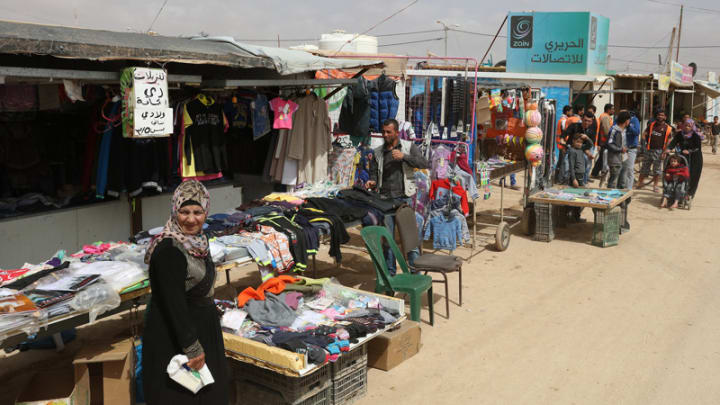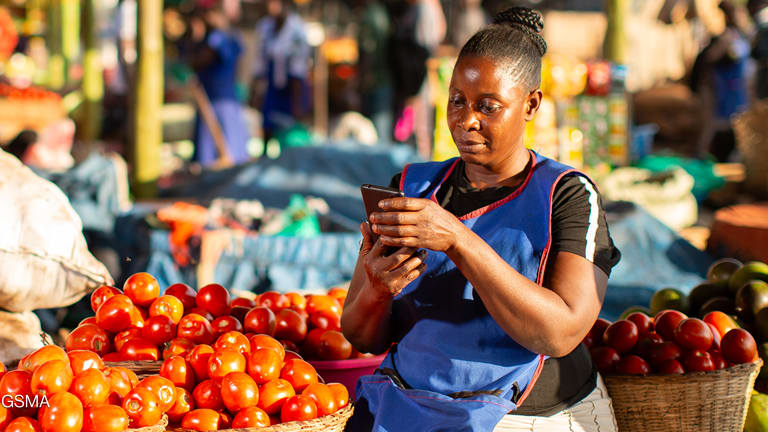
Nearly seven years and more 5 five million refugees later, the outlook for the Syrian refugee crisis has finally shifted from that of a humanitarian catastrophe to a long-term development challenge. As urgently as they need temporary food and shelter, refugees need help achieving lasting economic and social security as well.
In search of this security, many refugees have turned to the informal economy — off-the-book jobs that can be obtained without a work permit. Typically characterized by development experts as “vulnerable employment,” informal workers have little job security, no health insurance, and no minimum wage requirements, and they can face hazardous conditions and odd working hours. Consequently, policy recommendations often propose strategies to formalize this sector. But for refugees, who are struggling just to get by, this may not be the answer — at least not in the short term.
According to a June 2017 report by the International Labor Organization, 45,000 work permits have been issued to Syrian refugees in Jordan. But this hardly covers the 300,000 adult Syrian refugees (ages 18 and up) resettled there. Not surprisingly then, another ILO report finds that 99 percent of Syrian refugees working in Jordan are doing so informally. Compared to the 50 percent of Jordanians working informally, Syrians tend to be paid less and work longer hours.
Still, the informal economy may serve as an opportunity for Syrian refugees in Jordan and elsewhere who otherwise would be completely dependent on aid from NGOs and multilateral organizations — aid that does not and cannot cover everyone.
For women refugees, in particular, the informal economy may open a door for employment. Forthcoming research by the International Rescue Committee and Overseas Development Institute suggests that attempts to bring refugees into the formal economy may not be powerful enough to overcome the additional and quite specific barriers faced by women in accessing employment. Focus group discussions revealed that women are limited both by cultural limitations and widespread gender-based harassment on public transportation. By offering more opportunities for home-based work, in addition to flexible hours that permit women to continue fulfilling their caregiving responsibilities, the informal economy can provide female refugees with a source of socially acceptable employment.
It is within this context that policymakers, NGOs, and the private sector should consider how to help refugees — especially women, who have been shown to reinvest more of their incomes into their families and communities than men — succeed in the informal economy. Too often women are either overlooked or an afterthought when it comes to crafting policies and programs to help the most vulnerable, even as they are heading an ever-larger number of households.
One idea is to focus on digital connectivity. While access to the internet enables refugees to connect with distant loved ones, it can also provide a lifeline to employment. Within the informal economy a subdivision called “microwork” has emerged. As described by a 2017 article, “microwork is a segment of online outsourcing. Simply put, it is a digital job that has been broken down into small tasks to be done by a human. Tasks include image labeling, data authentication, and sentiment analysis; simple tasks that cannot be done by a machine.”
Often these tasks can be accomplished with nothing more than a smartphone.
In May, the World Economic Forum and the Jordanian government announced the launch of Jordan Internet for All — an initiative that aims to bring internet access to millions of people in Jordan, including women and refugees. As part of the project, young men and women will serve as ambassadors, training others in the digital skills necessary for use in the digital economy, among other arenas. According to Janet Longmore, founder and CEO of Digital Opportunity Trust — one of the organizations involved with the initiative — “inclusion of girls and women as digital champions and beneficiaries is a key priority for the program.”
The Jordan Internet for All initiative could help more refugees feed their families and send their children to school. In addition to facilitating microwork, it could help refugees start their own enterprises, or eventually build the skills needed for formal employment.
Other organizations could further assist by donating smartphones to refugees who don’t already own one and by providing culturally sensitive training sessions to men and women on why it is important for women to have internet access.
The informal economy won’t disappear anytime soon. According to journalist Robert Neuwirth, “If the informal economy was combined in one country, it would be the second-largest economy on Earth, rivaling the United States economy.” So instead of seeking right now to formalize informal jobs, refugees may, instead, best be served by receiving the digital tools needed to succeed in informal work.
Join the Devex community and access more in-depth analysis, breaking news and business advice — and a host of other services — on international development, humanitarian aid and global health.





